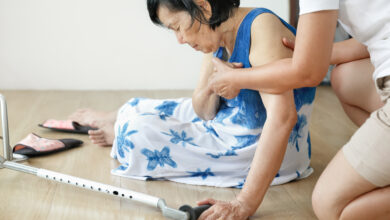Push to save young lives
A landmark report on youth suicide in the Northern Territory calls for better training of nurses in indigenous and mental health to help turn around the alarming statistics, writes Darren Marra.
Mental health care groups have welcomed a report into youth suicide in the Northern Territory that calls for specialised suicide prevention and bereavement training for front-line nurses.
The 215-page Gone Too Soon report describes a youth suicide “contagion” – an infection it says many workers are ill-equipped to deal with.
The report, released by a special committee of territory MPs, found about 30 per cent of all suicides in 2009 in the NT were young people aged 15 to 24. It also says the suicide rate among youths was 3.5 times higher than the national rate between 2001-06.
Between a four-year period during 2007-11, territory police responded to more than 400 cases of serious self-harm by young people under 25, the report states. In the same period, there were 225 suicides, 28 involving very young people.
Alarmingly, Aboriginal deaths accounted for 75 per cent of all child suicides between 2007 and 2011. Owing to the frequent difficulty of knowing or proving a person’s intent to commit suicide, it is thought the rate could be even higher.
Amongst the report’s 23 recommendations, several emphasise the key role played by “gatekeeper” staff such as nurses in suicide prevention. Many call for more mental health care-related training for these front-line workers.
This includes training in mental health first aid, suicide bereavement and counselling, particularly in regional, rural and remote communities. The committee also calls for a review of debriefing procedures and support for frontline staff regularly exposed to suicide.
The committee heard, in a submission from the Aboriginal Peak Organisations Northern Territory alliance, that there needs to be more co-ordination between mental health nurses and Aboriginal family support workers. The alliance also called for one nurse with mental health or alcohol and other drugs qualifications per community of 1500 people.
The final report, however, stopped short of recommending any specific targets for appropriate nursing staffing levels.
Nurses asked to step up
Jane Johnson, a trained nurse and CEO of counselling service Lifeline Top End, says Gone Too Soon has sparked debate on an often neglected topic and made some recommendations she considered very important.
In particular, Johnson welcomes the report’s recommendation to establish a co-ordinating body to better utilise the territory’s resources.
Gone Too Soon says this umbrella body should interlink the myriad and often overlapping mental health services to help them better understand their specific roles in a broader suicide prevention scheme.
Johnson says enhancing the role of nurses in suicide prevention is critical for any preventative strategy. “Nursing and counselling are two different areas, but they can be very complementary areas and it’s very important for a nurse to be able to use proper communication skills to get people to open up,” she says.
“It helps in the anxiety areas, in depression, in mental health areas. It also helps for proper understanding of what’s needed for patient care.”
The inquiry also recommends mental health facilities for young people be set up in Alice Springs and more remote centres including Katherine and Tenant Creek.
But, given the scope of the problem, are there enough workers currently in the frontline to staff new facilities?
According to a joint submission from remote nurse practitioner Lyne Byers and clinical psychologist Alira Capararo, there have long been calls for more staff in remote communities, particularly those trained in mental health and suicide response and therapeutic and crisis intervention. But Byers and Capararo, cite a severe housing shortage in remote areas for staff as a barrier to this.
Byers and Capararo say the capacity of health services to respond timely to suicide, self-harm or serious mental health concerns is limited.
“There is no capacity to provide ongoing counselling or therapeutic intervention to people who reside in remote communities. There is just far too greater distance to cover and far too many communities to service with the limited number of staff allocated,” their submission read.
They say solutions would not be simple or cheap, but it is important to recruit skilled personnel to deliver services for the whole population. “What we are lacking the most is not complex models of intervention or suicide prevention strategies or public media campaigns, it is people.”
To help address some of these obstacles the report calls for a review of staff housing in a host of NT townships and strategies for funding for new staff accommodation.
Attention on indigenous trends
Perhaps most alarmingly, the report found that youth suicide was most acute in NT indigenous populations. “For Northern Territory indigenous children under 15 years of age between 2001 and 2006, the suicide rate was five times the Australian rate,” the report said.
And more and more young indigenous Australians are taking their own lives. In 2001-05, the rate for 10-17 year old Aboriginal children was 18.8 per 100,000 people. By 2006-10, that rate had jumped to 30.1 per 100,000.
Kim Ryan, chief executive of the Australian College of Mental Health Nurses, welcomes the Gone Too Soon report, but argues that nurses are often underprepared for work in some of Australia’s most isolated and marginalised communities.
“From a nursing perspective, there is little information in relation to indigenous health and mental health and wellbeing in undergraduate nursing curricula. So we need to look at postgraduate education and training for mental health nurses in particular and probably reinforce or strengthen the components of indigenous mental health and wellbeing in those courses,” she says.
Kate Carnell, CEO of national anti-depression initiative beyondblue, who made a submission to the committee, criticised the overall findings for what she called inadequacies in addressing Aboriginal-specific health issues. She says she was concerned at the increase in the suicide rate among indigenous youths. “So from my perspective, I was surprised that there wasn’t a bit more targeting in the recommendations.”
The office of the federal Indigenous Affairs Minister, Jenny Macklin, declined to further comment on the report but said in April that the federal government would take it “very seriously”. She told reporters in Darwin that “services that we put in place [will] correspond to the recommendations in the report”.
Headspace a ‘crucial’ service
The suicide prevention work of Australia’s national youth mental health foundation, headspace, was also singled out by the committee as “exemplary” and calls were made for centres to be opened in Katherine, Tenant Creek and Nhulunbuy.
Headspace CEO Chris Tanti says the foundation is working closely with both the NT and federal governments on a way to deliver more services to some of the territory’s most remote regions. “I see headspace as being very involved in developing the long term youth suicide prevention plan and a crucial part of delivering services in the future,” he says.
“Unfortunately there is no quick fix to this issue. Suicide prevention requires a consolidated and co-ordinated approach between all levels of government as well as Aboriginal and Torres Strait Islander Australians, their communities and existing health and mental health services,” Tanti says.
“There are obviously workforce challenges in rural and remote parts of Australia, so we are looking at different ways of delivering headspace services to best serve the mental health needs of young people in these communities.”
Federal Minister for Mental Health Mark Butler acknowledges these difficulties: “Attracting the appropriate workforce in rural and remote areas has always been a challenge that the government acknowledges,” he says.
Butler would not commit to a timeframe for a concrete government response to Gone Too Soon, but says it is “considering relevant recommendations carefully” and will co-ordinate with the NT to “ensure a co-ordinated response to suicide prevention activities”.
The full report can be downloaded from the NT parliamentary website, visit: http://www.nt.gov.au
Key recommendations
* Promotion of youth friendly and culturally appropriate counselling and mental health services, including the establishment of headspace services in Katherine,
Tennant Creek and Nhulunbuy
* Promotion of the use of online and telephone crisis support services
* A minimum ratio of counsellors to students in all schools
* The provision of mental health specialist staff for court and detention settings
* Maintaining at least one staff member with mental health training in all accident and emergency departments
* Provision of suicide bereavement training for frontline police, health and education staff
Email: [email protected]





